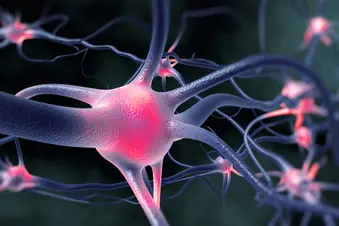
Potassium is a mineral that many parts of your body, including your brain, nerves, heart, and muscles, need to work properly. You might be surprised at all of the things it does for you.
It’s an electrolyte, like sodium, calcium, and other minerals. They manage how much water you have in your body and help maintain your body’s electrical system. Potassium also:
- Moves nutrients into your cells and takes waste out
- Counters the effects of sodium, which can help your blood pressure
Your kidneys control how much potassium is in your body by filtering any excess out of your blood.
Balance is key. If levels of potassium are either too low or too high, things can get off-kilter.
Most people fall short of the minimum recommended amount of potassium per day. And while taking in too much or too little potassium isn’t a problem for healthy people, it can be if you have chronic kidney disease or take certain types of medicines. That’s one reason why you should check with a doctor before you take potassium supplements.
Here are some of the parts of your body potassium helps.
Your Heart and Other Muscles
One key job for potassium involves the electrical signals sent by muscles. It lets them contract properly. If you have a low potassium level, you can get muscle weakness and cramps.
Because it's a muscle, your heart needs potassium. It helps cells send the right electrical signals so that the heart pumps correctly. Having too much potassium in the body can alter the heart’s rhythm.
Potassium and Your Kidneys
Normally, the kidneys are your body’s exit ramp for excess potassium, sending it out in urine. But in people with chronic kidney disease, potassium may build up and levels can become dangerously high.
Potassium and Your Nerves and Brain
Potassium helps your nerves fire properly so that they respond to stimulation. Again, this happens via electrical signals that travel from cell to cell.
As part of the nervous system, your brain also needs potassium. The mineral allows brain cells to communicate, both with each other and with cells that are farther away. Changes in potassium levels have been linked to learning, the release of hormones, and metabolism.
Show Sources
Photo Credit: iLexx / Getty Images
SOURCES:
U.S. National Library of Medicine: “Fluid and Electrolyte Balance,“ “Potassium.”
Academy of Nutrition and Dietetics: “What Is Potassium?”
American Heart Association: “How Potassium Can Help Control High Blood Pressure.”
Concepts of Biology, 1st Canadian Edition: “19.4 Muscle Contraction and Locomotion.“
University of Rochester Medical Center: “Potassium.”
American Heart Association: “Hyperkalemia (High Potassium).”
HealthDirect Australia: “Potassium.”
Neurochemistry International: “Potassium signaling in the brain: its role in behaviour.”
National Kidney Foundation: “Hyperkalemia.”